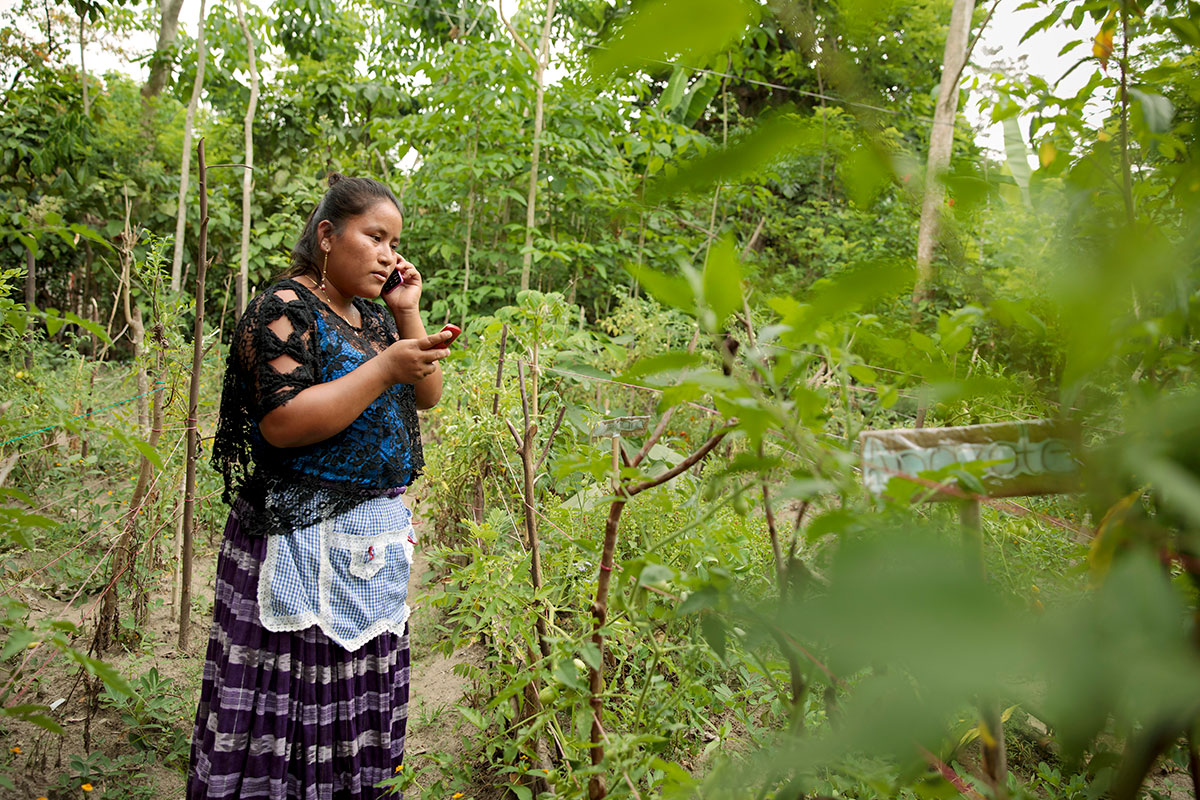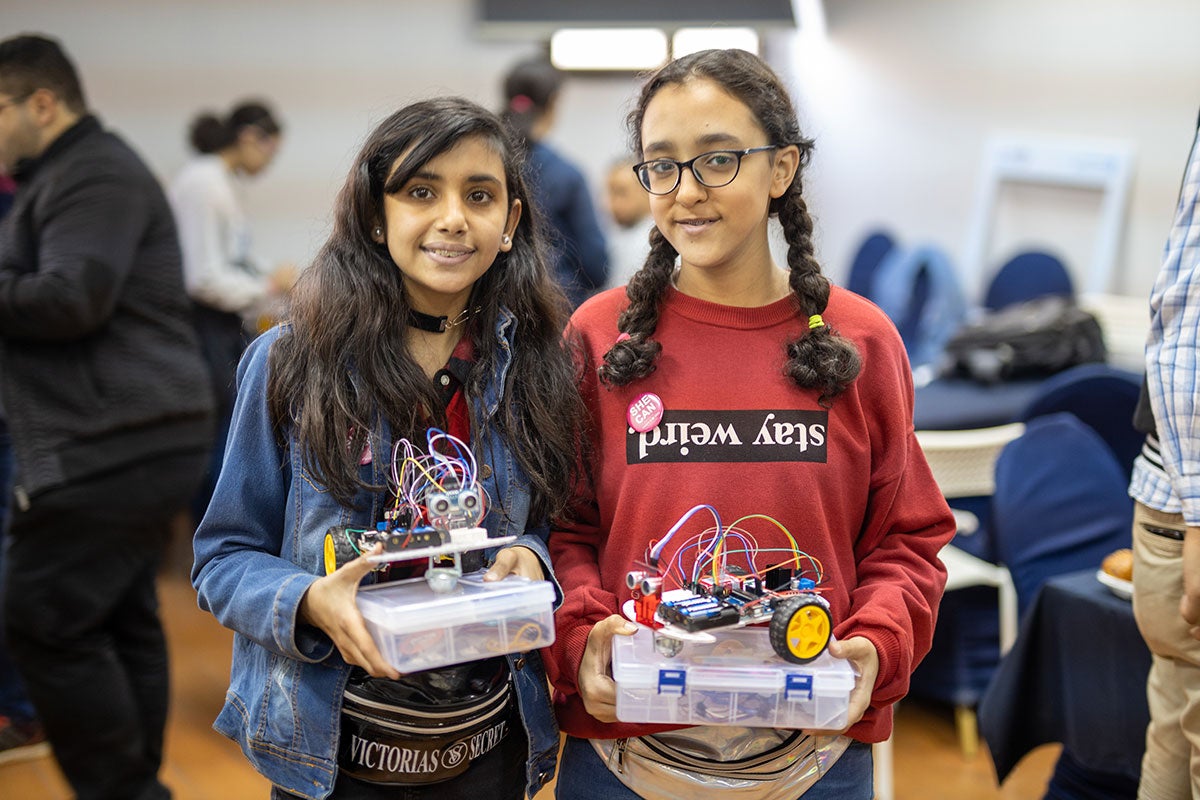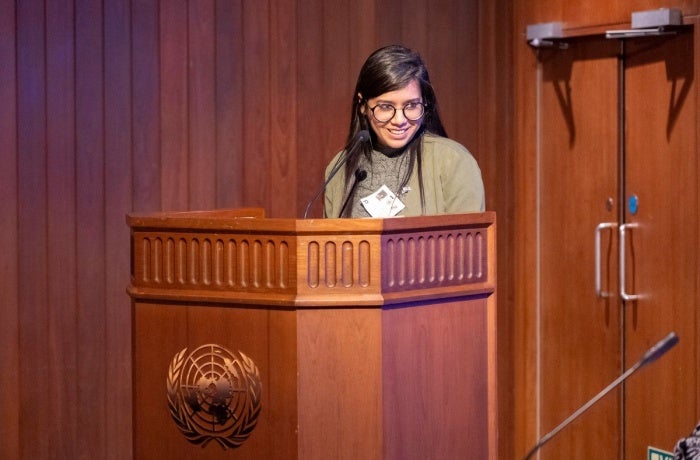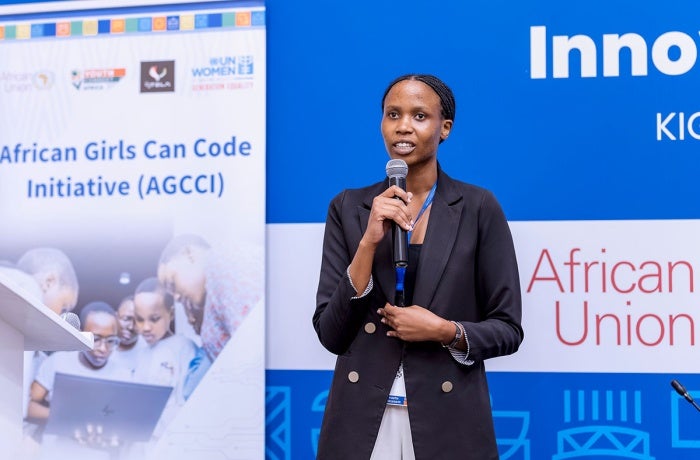Op-ed: Technology and Gender Equality – bringing women and girls to the centre of innovation
The 67th Session of the Commission on the Status of Women is a global opportunity for us to celebrate the achievements of women and girls around the world, and to deepen our resolve to accelerate progress on gender equality.
In dealing with a major issue at the centre of the advancement of women and girls, this year’s focus on innovation and technology for gender equality could not be timelier—nor more important.
Innovation and technological change are deep shifts reshaping life in the 21st century. Technological progress allows for unprecedented advances with the potential to improve social, economic and political outcomes for all.
Yet these advances and outcomes are not equally shared. Three billion people remain unconnected to the internet, the majority of whom are women and girls. Women also lag men in the effective use of technology as that capability interacts with other dimensions of discrimination, such as education and skills gaps and curbs on autonomy. As the online world becomes more important in people’s lives, the acceleration of technological change heightens the risk of further entrenching these inequalities.
Women and girls have made significant contributions to human innovation, yet remain underrepresented in science, technology, engineering, and mathematics. They are only 35% of students in STEM education. Women hold less than one third of positions in the technology sector and hold only 22 per cent of jobs in the artificial intelligence arena.
The result of these discrepancies is seen not only in the casual misogyny of the high-tech workplace, from which women continue to drop out at alarming rates, but also in the products and services being produced by high-tech firms, with unconscious bias and inequality quite literally written into the code of the most broadly used technologies.

The future of technology must not be a future of inequality
Digital activism and the power of movements like #MeToo demonstrate without doubt the power of collective digital action to promote change. However social media has also given rise to gendered disinformation, misinformation, online violence and sexist hate speech, targeting women as well as LGBTQ+ persons, human rights defenders, politicians and journalists everywhere, and concerns are growing that emerging AI tech may be deployed to further these unconscionable tendencies.
Baseless online attacks are assaults on democracy and inclusion. They seek to silence women’s voices, discourage them from running for public office or advocating for their rights. As the development of artificial intelligence accelerates, the risk of biases becoming even more deeply entrenched in the systems of our lives is growing exponentially.
If the challenges seem steep, the ongoing 67th Session of the Commission on the Status of Women can be a powerful course-corrector. We must all show the women and men of the world that we are not daunted. We can, and we must, ensure that humanity prevails in the digital space, even when it is found wanting in real life. This Session is our collective chance to strengthen the normative framework around gender and technology, and at a key moment in advance of the Global Digital Compact, which will be part of the Secretary-General’s Summit of the Future in 2024.
The Secretary-General’s report informing the Commission is clear in its recommendations. We must prioritize equal and meaningful access for all women and girls, that allows a safe, satisfying, productive and affordable online experience. Technology must promote women’s and girls’ equal rights and opportunities to learn, have their voices heard, access key services, expand their businesses or access financial products.
We must push back against gender-based violence and the colossal impunity enjoyed by perpetrators and the digital platforms that amplify and funnel targeted attacks on women and girls. In short, we must ensure that technology amplifies women’s voices, so that they may have stronger impact on the future course of our world.

Diversity is critical to ensure technology meets everyone’s needs
Promoting gender equality in the realm of technology is indeed a matter of rights, but it goes beyond questions of justice. Women’s equal leadership in tech spaces will ensure that the technology of our future fosters’ sustainability and inclusion, not breakdown and division. Bringing women’s perspectives into science and technology will help the sector to understand that innovation needs to extend beyond the purely technical. Diversity is critical in tech, as it enables companies to create better and safer products that take everyone into consideration.
However, we will only achieve the progress we seek, and the products women and girls want, when we ensure that they are equally represented across all spheres of decision making. Women policymakers are bringing important perspective to regulatory discussions. Women technologists are rejecting outdated models and putting inclusion and safety at the heart of their work. In every sphere, women’s rights and contributions are vital for a future where technology serves humanity, not the other way around. What is needed is for these contributions to be more centrally embraced, and to begin to foster change with urgency and at scale.
Bringing women and girls to the centre of technology requires collective action
More than ever, this year’s priority theme calls upon us all to take collective action. We must ensure that global technology platforms are based on human rights, openness and accountability. We must address the power asymmetries between the owners and users of digital services and the proliferation of technical companies that dominate the digital landscape without adequate safeguards or accountability. We must foster collaboration across governments, civil society, private sector, and the technical community to ensure the benefits of digital technologies are equally distributed.
To forge the future we need, women and girls must be front and centre, leading the way, including in the realm of technology. Our future, everyone’s future, depends on it—online and offline.









